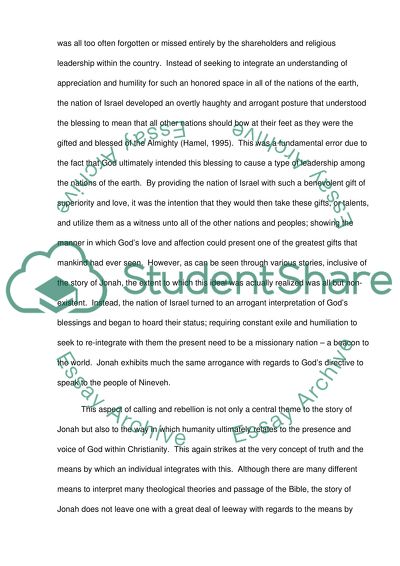Cite this document
(“An analysis into the Biblical Story of Jonah Research Paper”, n.d.)
Retrieved de https://studentshare.org/religion-and-theology/1404188-living-in-the-whale-questioning-god-s-guidance
Retrieved de https://studentshare.org/religion-and-theology/1404188-living-in-the-whale-questioning-god-s-guidance
(An Analysis into the Biblical Story of Jonah Research Paper)
https://studentshare.org/religion-and-theology/1404188-living-in-the-whale-questioning-god-s-guidance.
https://studentshare.org/religion-and-theology/1404188-living-in-the-whale-questioning-god-s-guidance.
“An Analysis into the Biblical Story of Jonah Research Paper”, n.d. https://studentshare.org/religion-and-theology/1404188-living-in-the-whale-questioning-god-s-guidance.


